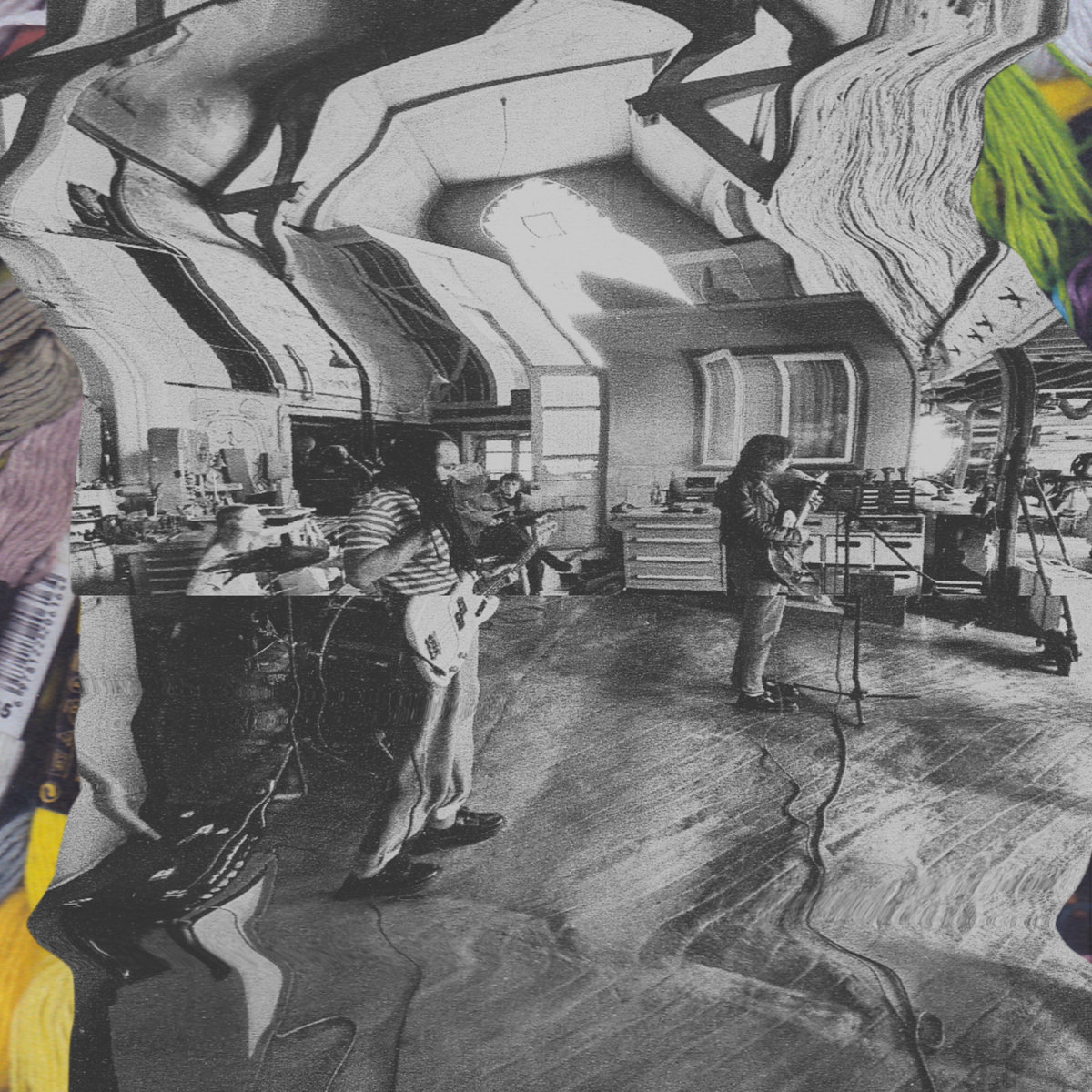Heavenly Blue – We Have The Answer | Album Review
/Secret Voice / Deathwish Inc.
Humanity’s search for an “answer” is a tale as old as time, with the ever-present desire to find meaning in life occupying the thoughts of countless people every day. Despite living in a world where everyone is closely connected through the means of the internet, feelings of isolation are as prevalent as ever, made worse by a global pandemic that was allowed to thrive in a dehumanizing system that continues to grow unabated. On We Have The Answer, Heavenly Blue embodies those feelings of isolation track after track, while the band also offers insight to what might be the only thing that can heal us – building true community.
We Have The Answer is Heavenly Blue’s first full-length release, but it feels much more like a culmination than a debut – in the best possible way. Some of the album’s tracks originated in the band Youth Novel, as detailed in Swim Into The Sound’s recent interview with Heavenly Blue’s guitarist Maya Chun and bassist Jon Riley. The songs here are refined, drawing on a range of 2000s screamo and post-hardcore influences to create something that sounds new and exciting. Fans of bands like Orchid, Funeral Diner, and Pg. 99 will find plenty to enjoy, along with some slightly broader influences like Converge, The Fall of Troy, and Thursday.
These 11 tracks cover a wide range of emotions, balancing chaotic aggression with more melodic sections, often within the same song. A perfect example of this dichotomy is “Certain Distance,” the longest track on the record, which features stretches of light and airy guitar interplay to break up the unrelenting force of the rest of the song. The music is accompanied by poetic lyrics similar in style to the previously mentioned Orchid, serving as one of the lighter songs on the album.
What is this impersonal plea?
I know who I am in a pinch.
I by design shatter, untwine
I stumble back and fall out again
On my own
That song gives way to “Static Voices Speak To Me,” the album’s first single. The track is short and sweet, with a catchy hook that’s rare to come by in the genre and shows the breadth of styles Heavenly Blue is taking inspiration from. It’s easy to picture crowds of screamo kids in basements and small clubs singing along to the chorus here, and the song has a sweetness that stands out amid all the aggression. “Static Voices Speak To Me” is one of the album’s highlights, serving as a stark example of the duality of despair and hope that define these songs.
Heavenly Blue’s rhythm section keeps the record moving swiftly, with the percussion on “A Part Of Me, A Part Of You” standing out as another high point. The song moves at a breakneck pace, with the frenetic drums adding an infectious energy that elevates everything else. Once again, the band straddles the line between melody and discord before transitioning to “Looming,” possibly the heaviest piece on the album. In front of blazingly heavy riffs, the band’s two vocalists take turns belting out lyrics that are fittingly grim.
I'm looming, I'm flaying, I'm hemorrhaging my time
I'm bleeding, flailing, my words all want for knives
Next is the penultimate track of We Have The Answer, “Heat Death Parade.” Here, the band slows things down at first with an intro reminiscent of something you’d hear on City of Caterpillar’s classic 2002 self-titled release. Things continue to build from there, with dual vocalists Juno Parsons and Mel Caren joined by pulsating guitars until the song culminates in a satisfying post-rock zenith. The final track, “All Of The Pieces Break,” picks up where “Heat Death Parade” leaves off, featuring a dreamy guitar melody interrupted by a heavy, repeating riff. This leads to a fittingly energetic finale for the album before it all comes to an abrupt stop.
Mixed and partially recorded by the band’s own Maya Chun, the production on We Have The Answer is clear without sounding overly polished for the genre. With layers of distorted guitar tracks winding in and out of each song, it’s easy to envision how muddled this album could sound. Instead, everything has space to breathe – except for the moments that offer cascading walls of sound as the band builds up to the album’s emotional high points.
Despite the carryovers from Youth Novel, the name change is appropriate, as the finished product sounds very distinct from the band’s previous incarnation. Though they are relatively recent arrivals on the scene, the last several years have seen the band build momentum by playing some higher-profile shows, including opening for Touché Amoré and playing New Friends Fest in 2023. In their short time as a band, Heavenly Blue has built tight bonds with other bands like Frail Body and earned support from names like Touche Amore’s Jeremy Bolm, who runs the Deathwish Inc. imprint Secret Voice, which put out We Have The Answer. The screamo genre seems to be on the rise again, and Heavenly Blue is carving out their position in the latest wave.
In speaking with members of the band and reading past interviews, it’s clear that they’re intent on building or maintaining the community aspect of DIY music. Though the music is often dark, there is still a feeling of hope underneath the surface, tied directly to the band’s focus on that community. The songs on We Have The Answer offer catharsis for the many frustrations of our current social climate, but, as promised, Heavenly Blue offers an answer. Even when music serves as a release for feelings of hopelessness, it creates bonds between people. There are moments of beauty in life, but they only come through building genuine connections with others. Make art, have conversations, and be mindful. We live in bleak times, but through our connections to each other, it is possible to build a better future.
Nick Miller is a freelance writer from Ypsilanti, Michigan, primarily writing about the world of professional wrestling. He also enjoys playing music, reading, tabletop RPGs, and logging Letterboxd entries (AKA watching movies). You can find him on X at @nickmiller4321 or on Instagram at @nickmiller5678.













